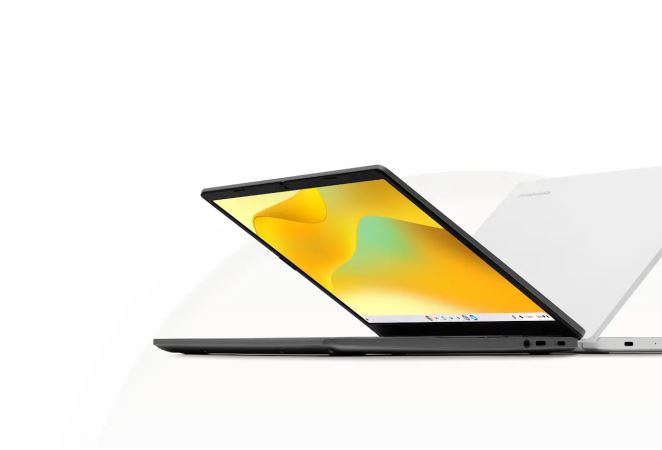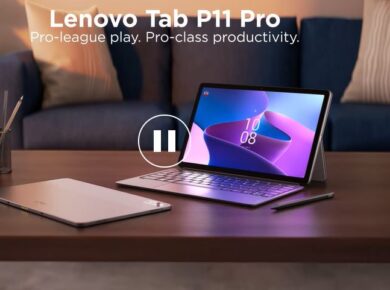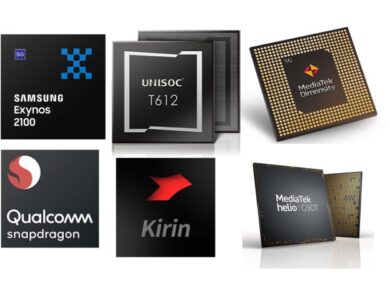You need a new laptop or Chromebook for business. Been there. And, just like me, you are petrified. Scared of sifting through a gazillion options on endless lists of specs, terrified of the sales pitch every single tech store in town is beaming at you. Whatever you do, don’t do that. Most of the time, finding the right thing is not as difficult as it feels. But just in case, let me de-complicate choosing the best Laptop or Chromebook for business in the most human, understandable way I know.
Ultimately, the choosing of a device comes down to need. You should want to know what you do on a daily basis. What’re you trying to accomplish and what’s going to help you get there faster, easier, and maybe even more fun? We’re going to explore how to find the best computer, whether it be laptop or Chromebook, for you and your business by employing some basic principles: speed, portability, OS, battery and budget.
1. Know What You Actually Need
Firstly, don’t get swayed (that is, the). It was this that with far more hard drive space than I’ll ever use, on the grounds that, at the time, for something so important I reasoned: ‘More is always better.’ Wrong.
Before getting into the details, stop and think for a minute about what you actually do on your computer. Are you a traveller, jetting around from meeting to meeting? Are you working from home most of the time, swamped in email, spreadsheets and video meetings? Do you need to run heavy software such as Photoshop or AutoCAD, or is everything you do in the cloud?
Here are a few key questions to ask yourself:
- Portability: Are you constantly on the move? If so, you’re going to want something lightweight with excellent battery life.
- Software: Do you need specific desktop apps? Or can you get by with cloud-based solutions like Google Workspace?
- Multitasking: How often do you have 10 tabs open, while editing a document, and running a video conference? If that’s your daily life, you’ll need a machine with enough RAM and processing power to keep up.
Once you have these answers, you’ll start to see which features matter and which ones don’t.
2. Chromebook vs. Laptop: Which One Suits You?
This is a big question for a lot of people: should you go with a Chromebook or a traditional laptop? They’re both great, but they serve different needs, so let’s break it down.
Why Choose a Laptop?
If you need a versatile, powerful machine that can run heavy-duty software, like video editing tools or design programs, a laptop is probably your best bet. Laptops can handle pretty much anything you throw at them, from Microsoft Office to industry-specific programs. They’ve got the storage, the power, and the ability to multitask with ease.
But—laptops come with a price. Not just in terms of money, though that’s a factor, too. They can be heavier, bulkier, and they don’t always have the best battery life. If you’re constantly on the go, lugging around a big laptop can get old fast.
Laptops are great for:
- Running software that requires serious processing power
- Storing lots of files locally
- Needing high-level performance for things like video editing, coding, or graphic design
Why Choose a Chromebook?
Now, if your work is mostly web-based—think Google Docs, Sheets, email, cloud storage—a Chromebook might be all you need. Chromebooks are lightweight, affordable, and they’re perfect for anyone whose workflow revolves around the internet. They’re fast, boot up in seconds, and have fantastic battery life. The catch? They’re limited to web-based apps (though many also support Android apps now).
Chromebooks are ideal for people who don’t need much local storage, and if you’re primarily using cloud-based apps, they’re a fantastic, budget-friendly choice.
Chromebooks are great for:
- Working mostly in the cloud (Google Drive, Slack, etc.)
- Needing a lightweight device with long battery life
- Being on a tighter budget, as Chromebooks tend to be cheaper
3. Performance: Processor, RAM, and Storage
Okay, so let’s talk specs—because I know this part can feel like you’re reading a different language. You don’t need to be a tech genius to understand what you need for business, though. Here’s the quick-and-dirty breakdown:
Processor (CPU)
The processor is like the brain of your computer. The faster and more powerful it is, the more your machine can handle without slowing down.
- Intel Core i5 or i7 / AMD Ryzen 5 or 7: These are your best options if you need speed and efficiency. Great for multitasking, running heavier programs, or just ensuring everything runs smoothly.
- Intel Celeron or Pentium: These are often found in more budget-friendly laptops and Chromebooks. They’re fine for basic tasks—like checking email, browsing the web, or writing—but can struggle with more demanding software.
If you’re doing a lot of multitasking or using resource-heavy apps, go with an Intel i5/i7 or AMD Ryzen 5/7. It’s worth it for the performance boost.
RAM
RAM helps your computer handle multiple tasks at once. Think of it like your desk space—the more space you have, the more you can work on without feeling crowded.
- 4GB: Okay for basic tasks like browsing the web and working on documents. This is common in Chromebooks.
- 8GB: Ideal for most business needs—enough to handle multitasking, basic software, and more.
- 16GB: Only necessary if you’re doing serious multitasking, video editing, or design work.
Storage
Storage is another area where you’ll need to think about how you work. Are you storing tons of large files locally, or do you mostly keep everything in the cloud?
- Chromebooks usually have around 32GB to 128GB of storage, which is more than enough if most of your work is cloud-based.
- Laptops can come with 256GB SSD (solid-state drive) and up. SSDs are faster than traditional hard drives (HDDs), so you’ll notice better performance if you go with an SSD.
If you don’t need much local storage, you can save money by going with less. But if you store videos, photos, or large documents, opt for at least 256GB.
4. Portability and Battery Life
If you’re frequently on the move, you don’t want to be dragging around a laptop that feels like a brick. Portability is key for business professionals who need to be agile and mobile.
Weight
- Chromebooks are lightweight, typically around 2-3 pounds.
- Laptops can vary, but many powerful models weigh between 3-6 pounds. Some ultrabooks (like the Dell XPS series) can be lighter, though.
Battery Life
Battery life is crucial if you’re not always near an outlet. Chromebooks are champs here, often lasting 10+ hours on a single charge. Laptops can vary more—ultrabooks tend to have decent battery life, while more powerful laptops (with dedicated graphics cards or higher-end CPUs) might last only 5-7 hours.
5. Operating System: Windows, macOS, or Chrome OS?
Another big factor to consider is the operating system. Here’s a quick breakdown of each:
- Windows: The most versatile OS, especially if your business uses a lot of Microsoft apps (Word, Excel, etc.) or proprietary software. It’s compatible with nearly everything.
- macOS: Ideal for creatives (designers, video editors) and known for its smooth, user-friendly interface. It’s a bit pricier, though.
- Chrome OS: Great for web-based work, lightweight, and secure. Chromebooks running Chrome OS are perfect for people who do most of their work online.
Final Thoughts on Choosing the Best Laptop or Chromebook for Business
At the end of the day, the best laptop or Chromebook for business is the one that fits your specific needs. It’s all about finding that sweet spot between performance, portability, and budget. If you need a powerful machine that can handle anything, go for a laptop with decent specs like an Intel i5 or higher and at least 8GB of RAM. But if you’re mostly using cloud-based apps and need something light and easy to carry, a Chromebook could be exactly what you need—without breaking the bank.
Ultimately, the best advice I can give? Focus on what matters most to your day-to-day work. Once you know what you need, everything else falls into place.
Read Next:
ChromeOS, Windows, or macOS? Which is the Best for You?




